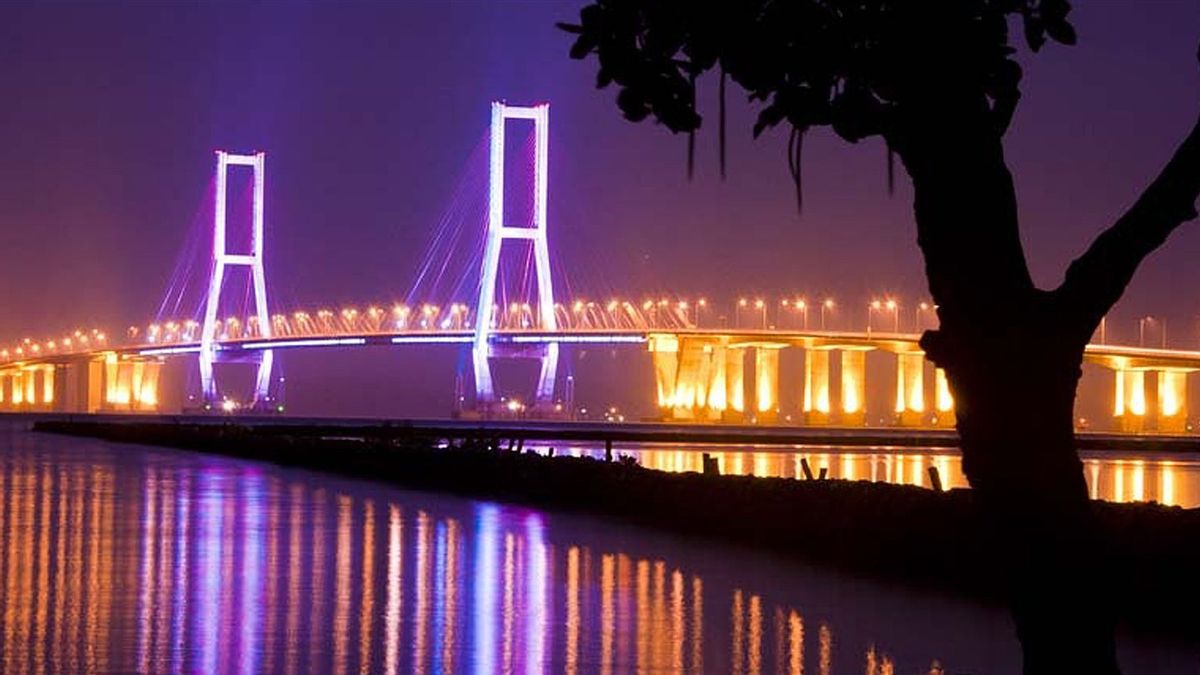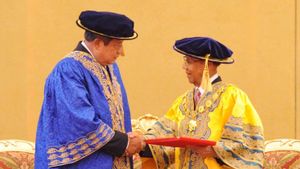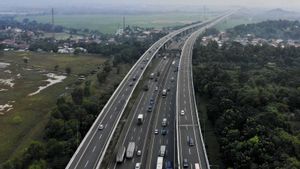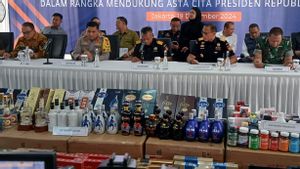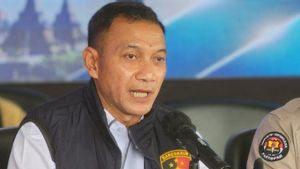JAKARTA - On June 10, 2009, the Surabaya-Madura National Bridge or Suramadu Bridge was inaugurated. The Suramadu Bridge was inaugurated by the Sixth President of the Republic of Indonesia, Susilo Bambang Yudhoyono.
The Suramadu Bridge has a length of 5,438 kilometers (kilometers). The Suramadu Bridge consists of three parts, namely the causeway, the connecting bridge (approach bridge), and the main bridge (main bridge).
With this bridge, the Surabaya-Madura travel time will be shorter. Initially, the Surabaya-Madura trip took about 30 minutes, by ferry.
But now the trip can be reached in 10 minutes by driving. Connectivity from the presence of the Suramadu Bridge is expected to accelerate the development of Madura Island.

Initiated since Soekarno
It took a long time until the Suramadu Bridge was finally built. The construction of the Suramadu Bridge Toll Road has been initiated since the era of President Soekarno's leadership, namely in 1960.
After that, the pre-feasibility study began in 1990 or in the era of the Second President of the Republic of Indonesia, Suharto. At the end of 1990, Suharto formed the Nusa Bakti Team which was a combination of a team of Indonesian and Japanese experts.
In 1997, the construction of the bridge was stopped due to the monetary crisis that hit a number of countries, including Indonesia. We have discussed more deeply about the crisis, starting from the causes, effects, and other factors in the MEMORI article entitled Causes of the Crisis and Other Financial Problems that Dropped Suharto.
Then on July 20, 2003, in the era of the leadership of the Fifth President of the Republic of Indonesia, President Megawati Soekarnoputri, the construction of the Suramadu Bridge was inaugurated again. Citing Detik, the budget for the bridge construction is Rp. 2.82 trillion.
However, based on information from various sources, it turns out that the cost of constructing the Suramadu Bridge prior to its inauguration by President SBY reached around IDR 4.5 trillion, with the construction time being delayed by up to six years.
Features of Suramadu Bridge
Suramadu Bridge is also a tourist attraction. This can be seen from how this bridge is often used as a place for selfies, especially at night.
At night, in particular, the Suramadu Bridge provides a beautiful view when the lights of the Suramadu Bridge are lit. Currently, the Suramadu Bridge is still the longest bridge in Indonesia.
In addition to being an icon, the Suramadu Bridge is also proof of infrastructure progress that is able to unite two islands, namely Java Island and Madura Island. There is one bridge that is under construction and is predicted to be the longest bridge in Indonesia.
The bridge is the Batam-Bintan Bridge. The bridge project is designed for 14,763 kilometers, has two destinations, namely Batam-Tanjung Sauh and Tanjung Sauh-Bintan.
"This two-span bridge, if measured cumulatively, will reach 5,561 kilometers," said Krisno. Meanwhile, the Suramadu Bridge has a length of 5,348 kilometers.
Citing Kompas, the Ministry of Transportation has set the vertical clearance for each of the Batam-Tanjung Sauh Bridge as high as 27 meters and the Tanjung Sauh-Batam Bridge as high as 40 meters. The adoption of the vertical clearance design caused the estimated investment value to swell from Rp. 8.78 trillion to Rp. 13.66 trillion.
Another bridge which is also known to be one of the longest bridges in Indonesia is the Ampera Bridge in Palembang, South Sumatra. This bridge connects the areas across Ulu and across Ilir which are separated by the Musi River.
Ampera Bridge has a length of 1,117 meters and a width of 22 meters, and has become an icon of the city of Palembang. Construction of the bridge began in April 1962 and was inaugurated in 1965.
During the inauguration, the bridge was named Bung Karno Bridge. However, after the political upheaval in 1966, the name of the bridge was changed to Jembatan Ampera (The Mandate of People's Suffering).
*Read other information about HISTORY or read other interesting articles from Putri Ainur Islam.
TODAY'S HISTORY MoreThe English, Chinese, Japanese, Arabic, and French versions are automatically generated by the AI. So there may still be inaccuracies in translating, please always see Indonesian as our main language. (system supported by DigitalSiber.id)
